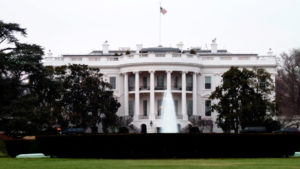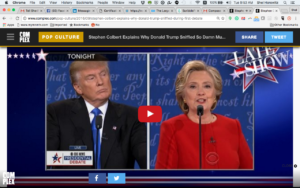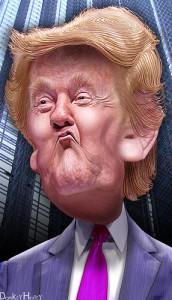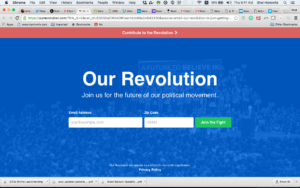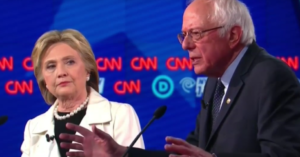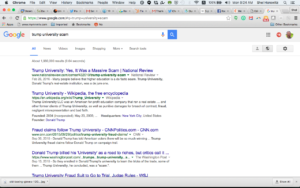Standing Rock Protector Accuses Other Side of Chemical Warfare
NOTE: You’ll find several action steps at the bottom of this post. If you don’t want to read the whole thing, please scroll down to that section and take action before leaving this page.
Watch this video made by Standing Rock Water Protector Candida Rodriguez Kingbird on November 14.
Read a transcript by clicking this link. She claims that a crop duster was spraying the encampment, and only the encampment. Kingbird’s video, or commentary on it, has appeared on many progressive sites and social media profiles.
We know the level of repression against Standing Rock Water Protectors has been consistently shockingly high. There are numerous reports of the authorities using water cannons, tear gas, and even rubber bullets against this peaceful group of Native people fighting nonviolently to protect their water—from a project that was originally to go very close to Bismark, but was rerouted because of worries about what it would do to the water supply.
The link in the paragraph above is to a Christian Science Monitor story with video. The Monitor is a respected mainstream news outlet known for its good journalism over many decades.
We know that the temperature has been in the 20s (Fahrenheit) at Standing Rock—well below freezing—and we know that both demonstrators and journalists have been injured and are being deliberately soaked: a clear recipe for hypothermia. It’s all-too-reminiscent of the tactics used by police departments in the American South against black nonviolent civil rights marchers in the 1950s and 1960s.
I see no reason to doubt Kingbird’s account.
Although a search for “chemical weapons standing rock” didn’t turn up any video of the spraying or any reportage based on a claim by someone else—or coverage in mainstream media, I find Kingbird’s testimony thoroughly believable. I found her a credible witness, someone clearly not used to being a public figure. I didn’t feel she was acting, just reporting—and speaking from the heart.
Brookings Institution researchers felt the job-creation benefits of the pipeline were only half of what pipeline backers have claimed. Former US Secretary of Labor Robert B. Reich says the entire project is economically unsound and will “go belly-up” (scroll back to his post of November 16, 2016). But Donald Trump stands to gain financially by its completion and is an outspoken advocate of tar sands, fracking, and other highly destructive fossil fuel extraction technologies. If Reich is correct, there is no economic justification for the project. In any case, there’s no excuse for the violence. And even if the project were financially viable, it’s been long-acknowledged that one way to avoid climate catastrophe is to STOP extracting fossil fuels, especially those extracted in the most environmentally destructive ways—like the tar sands at issue in the Dakotas and Western Canada.
There is the (faint, IMHO) hope that Obama will protect the area either by revoking the DAP permit or protecting the land as a National Monument in his final weeks, but I am personally not optimistic that either will happen, or that it will survive a near-certain overturn attempt form the new administration.
Actions You Can Take
Petitions (click the marked text to sign, then share them widely):
Stop the violence (Really American)
Declare the area a National Monument (Bernie Sanders supports this approach)
Of course, personal letters count much more, so if you’re inspired, go for it!
Phone Calls (with script)
Call the Morton County, ND Sheriff’s Department to tell them to stop attacking. Call the Army Corps of Engineers to tell them to revoke the construction permits. And call the US Department of Justice demanding an investigation into police violence at Standing Rock. (Single action page for all three, via Daily Kos—be sure to click “Not Dina?” if that text shows up on the right)
Donate Moneyor Goods to Standing Rock Water Protectors
These organizations were recommended by a friend who was recently out at Standing Rock.
Standing Rock Healers Council: website and Facebook page
Indigenous Youth Council Facebook page
Postal and Paypal addresses for donations :
PayPal: www.paypal.me/ocetisakowincamp
Checks or cash may be sent to:
Oceti Sakowin Camp
P.O. Box 298
Cannon Ball, ND 58528
List of MATERIALS they are seeking
https://www.ocetisakowincamp.org/donate


